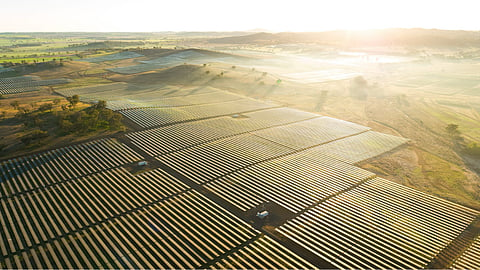

450 MW NSW solar farm moves forward: The New South Wales (NSW) government in Australia has approved the 450 MW Goulburn River Solar Farm that includes a battery energy storage system (BESS). Located between the Central-West Orana Renewable Energy Zone (REZ) and the Hunter-Central Coast REZ, this Lightsource bp project is expected to be built for AUD 880 million investment. During the construction period, it is expected to create 350 jobs and generate enough electricity to power about 191,000 homes/year, according to the administration.
550 MW facility in the Philippines: Vena Energy, the Singapore-headquartered renewable energy company, has announced an investment agreement for the construction of the 550 MW Bugallon Solar Power Project in the Philippines. The agreement has been signed with the renewable energy arm of Meralco PowerGen Corporation (MGen), MGen Renewable Energy (MGreen). Developed by Vena, the project located in Bugallon, Pangasinan under 3 Barracuda Energy Corporation will enter construction within 2024. Commercial operations are scheduled to begin by Q4 2025. MGen said this investment brings it closer to achieving the target of 1.5 GW of attributable renewable energy by the year 2030.
Work begins on 31 MW in New Zealand: New Zealand-based solar developer Rānui Generation has begun the on-site works for The Twin Rivers Solar Farm in the country’s Pamapuria region, near Kaitaia. The 31 MW project is part of the 1st of 4 solar farms with a combined capacity of 157 MW that the company has in its development pipeline. Construction is scheduled to begin within August 2024 for which contracts have been awarded to GE Vernova and INTEC Energy Solutions. Acquired by Singapore-based renewable energy investor SC Oscar’s SC Renewable Energy Plus Fund 1 Limited Partnership in June this year, Rānui said SC Oscar will fund the construction of the 4-project portfolio and help the Kiwi company to develop a portfolio of renewable energy projects. This is part of SC’s strategy to invest directly in renewable energy and energy transition real assets in the Asia Pacific.
Levanta to acquire more projects in Southeast Asia: Actis-backed renewable energy developer Levanta Renewables is acquiring 6 solar PV projects in Southeast Asia, representing a combined 9.5 MW capacity. Out of these 6 projects, 3 are located in Malaysia, 2 in Indonesia, and 1 in Thailand. It is purchasing these assets for its commercial and industrial (C&I) business from an unidentified regional renewable energy projects developer. Once commissioned, this 9.5 MW capacity will generate over 13 GWh annually to be supplied to corporate buyers. In July 2024, Levanta announced the acquisition of a 28.7 MW rooftop solar system in Vietnam.
MoU for agrivoltaic project in Japan: Osaka Gas, MUFG Bank and Machiokoshi Energy will work together on what the trio calls the 1st mega-solar-scale agricultural pasture-type solar power generation system in Japan for grazing. The 9.575 MW Shiranuka Solar Grazing Power Plant in Shiranuka Town of Hokkaido Prefecture will be located on pastureland. Osaka Gas will sell all the power generated to consumers, and to the market. MUFG will purchase the environmental value (non-FIT non-fossil certificate) from Osaka on a long-term basis under a virtual power purchase agreement (VPPA).
No subsidies for agrivoltaics in Japan: The Japanese Ministry of Economy, Trade and Industry recently said it has temporarily suspended feed-in-tariff (FIT)/feed-in-premium (FIP) subsidies for agricultural solar power generation projects that it says were found to have violated the Agricultural Land Act, and other inappropriate practices. The subsidies have been revoked for 342 cases/20 businesses, under the country’s revised Renewable Energy Special Measures Act that came into force in April 2024. Such companies were found to have not removed the equipment despite the temporary land conversion period having expired. Some were found to have not obtained permission to convert agricultural land to other uses, thus exceeding the 3-year FIT certification deadline.
